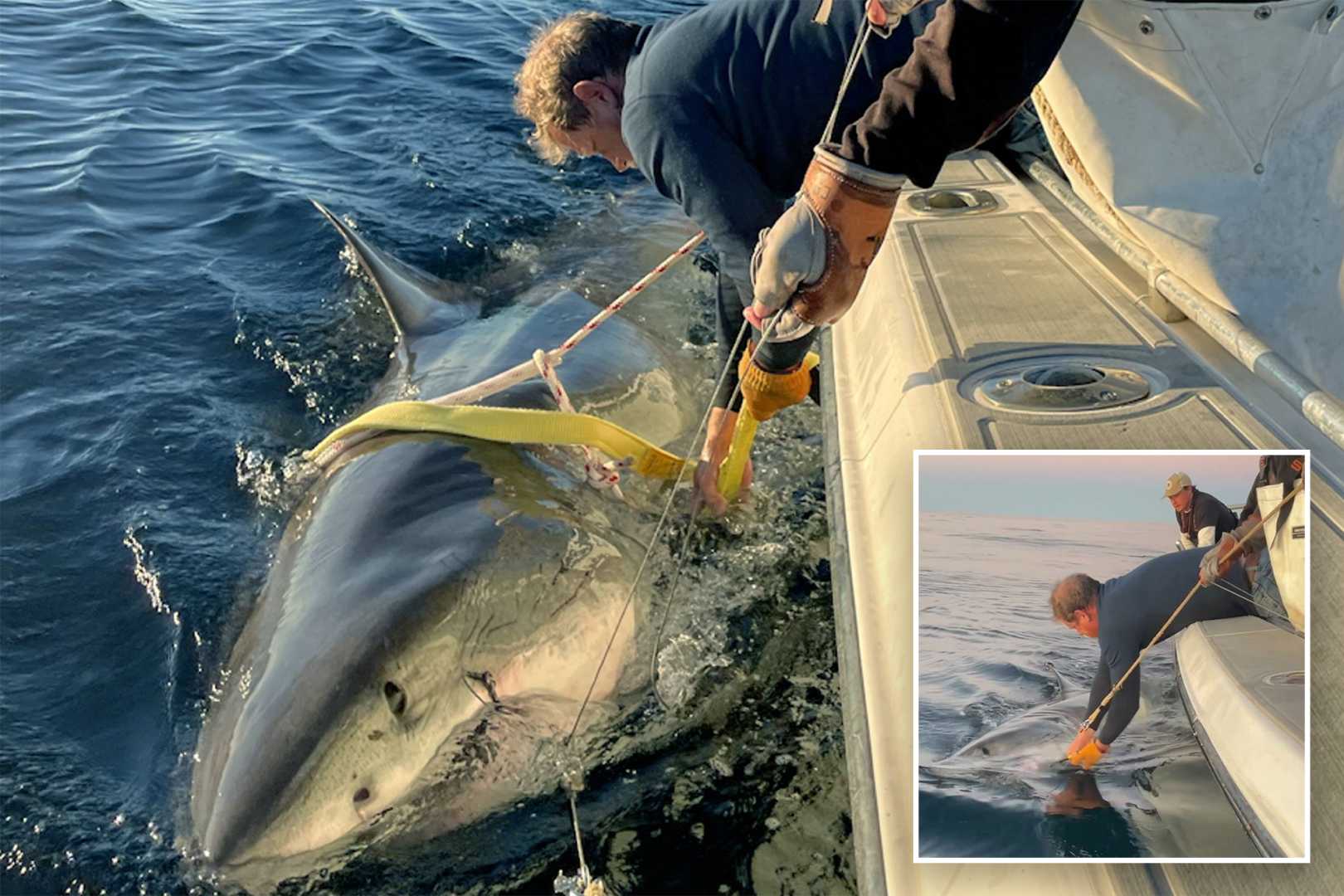News
Great White Shark Resurfaces Off Canada, Researchers Track Progress

Natashquan, Canada – The largest great white shark ever recorded has resurfaced off the coast of Canada, where he is feeding on seals in preparation for winter. Named Contender, this 14-foot shark was tagged by OCEARCH, a non-profit organization dedicated to marine research, about 45 miles off the Florida-Georgia coast in January.
Contender’s tracking device only sends signals when his dorsal fin emerges from the water, and last week, it pinged from the Gulf of St. Lawrence, marking him as one of the most northern pinging sharks observed by researchers. Weighing 1,653 pounds and estimated to be around 30 years old, Contender is currently gorging on seals to build fat reserves before migrating back to Florida for the winter.
Chris Fischer, founder and expedition leader of OCEARCH, states that Contender is putting significant pressure on seal populations by constantly hunting in front of their colonies. This behavior, he notes, ultimately helps protect fish stocks as the presence of sharks limits seal overconsumption of fish. “If that white shark’s not there, those seals go out and they wipe out all the fish,” Fischer explains.
Contender’s survival in colder waters showcases the adaptability of great white sharks. “White sharks have the capacity to warm themselves and be in cold water, but they have to have a lot of food,” Fischer adds. He compares the sharks to horses in winter, stating, “as long as they have food, they’re fine. If they run out of food, they freeze very quickly.”
Following a nearly month-long absence from tracking signals, Contender pinged from Pamlico Sound, North Carolina, twice in one day. His last significant ping was on September 29 off Natashquan, Canada. Fischer emphasized the importance of Contender to marine research, noting that the shark could help identify the first known white shark mating site, as no such location has ever been documented in any part of the nine populations worldwide.
“These big mature males are hugely important because they can help us understand where and when mating is occurring,” Fischer said, highlighting that the male white sharks’ yearly cycle revolves around mating.
With the tracking data from Contender’s satellite tag being active for five years, researchers hope to gather crucial evidence regarding mating grounds, especially as early data suggests potential activity off the southeastern United States next spring. Fischer expressed anticipation, stating, “I want to know where Contender will be in March of 2026.”












